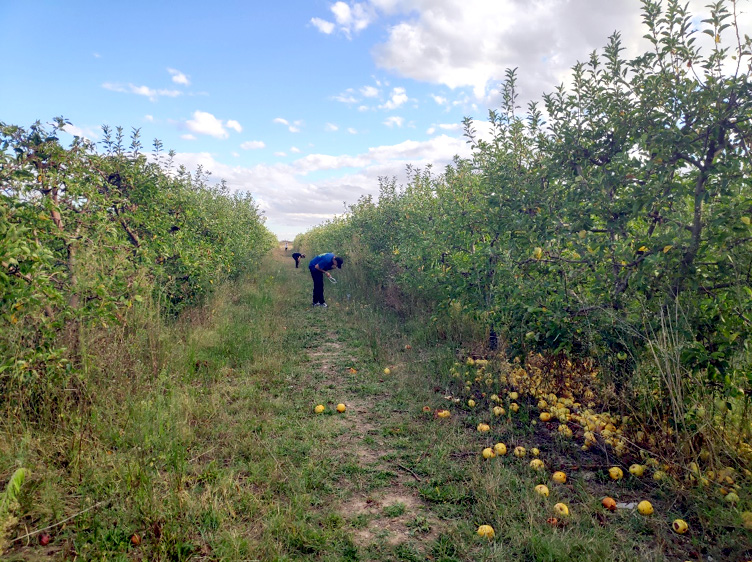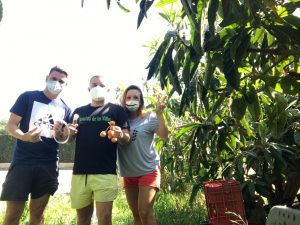 One more year – and the beginning of summer kicks off the sampling campaign for the citizen science project ‘Melanogaster: Catch the Fly! ” (#MelanogasterCTF), led by the Evolutionary and Functional Genomics Laboratory (González Lab) of the Institute of Evolutionary Biology (CSIC-UPF, Barcelona) and the scientific communication association, La Ciència al Teu Món (Science in Your World). Between July and October, teachers and students from 14 schools will be participating in this project.
One more year – and the beginning of summer kicks off the sampling campaign for the citizen science project ‘Melanogaster: Catch the Fly! ” (#MelanogasterCTF), led by the Evolutionary and Functional Genomics Laboratory (González Lab) of the Institute of Evolutionary Biology (CSIC-UPF, Barcelona) and the scientific communication association, La Ciència al Teu Món (Science in Your World). Between July and October, teachers and students from 14 schools will be participating in this project.
Teachers and students from educational centers in rural areas will be collaborating with scientists by collecting, classifying, and analyzing biological samples of Drosophila (fruit flies) from nearby cultivated fields. This allows us to study the genomic basis of adaptation – which consists of the changes in the organism’s genetic information that allow them to adapt to the environment. The fundamental question that requires answering is: how do organisms adapt genetically to new environments? Answering this question has ramifications for multiple applications that affect the whole of society, such as understanding how viruses adapt to new organisms; a question of particular relevance today in the context of the COVID-19 pandemic caused by the SARS-CoV-2 virus.
#MelanogasterCTF contributes directly to the objectives of the European Drosophila Population Genomics Consortium, DrosEU. The work of the DrosEU network, in collaboration with the #MelanogasterCTF project, has already provided us with some interesting results, such as the discovery of the “Tomelloso virus”, which infects Drosophila melanogaster; or the creation of the first European map of the genetic variation found in Drosophila melanogaster.
From its inception in 2016, #MelanogasterCTF has grown from two Spanish schools, in Baza and Tomelloso, to the current total of 14 participating schools in 6 Spanish regions (Andalusia, Aragon, Castilla-La Mancha, Catalonia, Navarra, and the Valencian Community). In the lastest 2019 edition, the German school of Justus von Liebig in the municipality of Waldshut-Tiengen (Baden-Württenberg), in the heart of the Black Forest, also joined #MelanogasterCTF. We are now also preparing to incorporate new schools from France, Italy, Portugal, Serbia, and Turkey.

The #MelanogasterCTF team encourages all educational centers, teachers, and students to be part of this project that allows you to come into direct contact with leading international research. We also invite current participants in the project to involve their friends, neighbors, agricultural stakeholders, and related entities (e.g. environmental protection); since this will allow us to expand the magnitude of the project and your actions. Finally, we remind you that the project is open to other countries, whether they are in Europe, Latin America, or the rest of the world. You can contact us via the Contact section.
#MelanogasterCTF adapts to COVID-19
Given the circumstances that society is going through during the COVID-19 pandemic, this year’s sampling campaign is expected to be special. (More information.)

